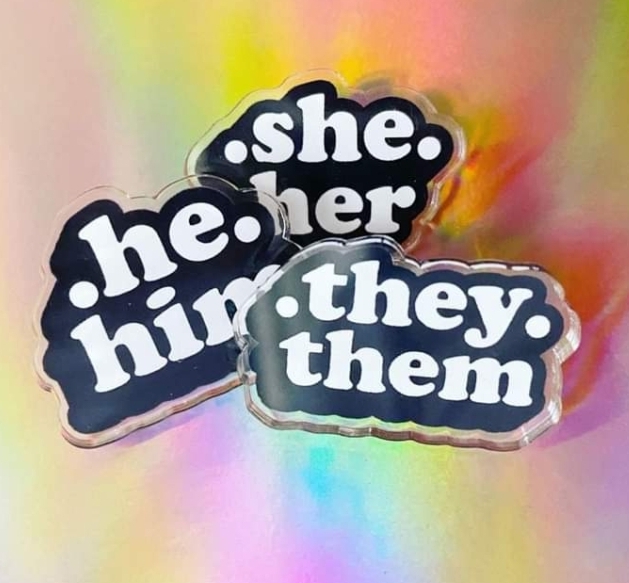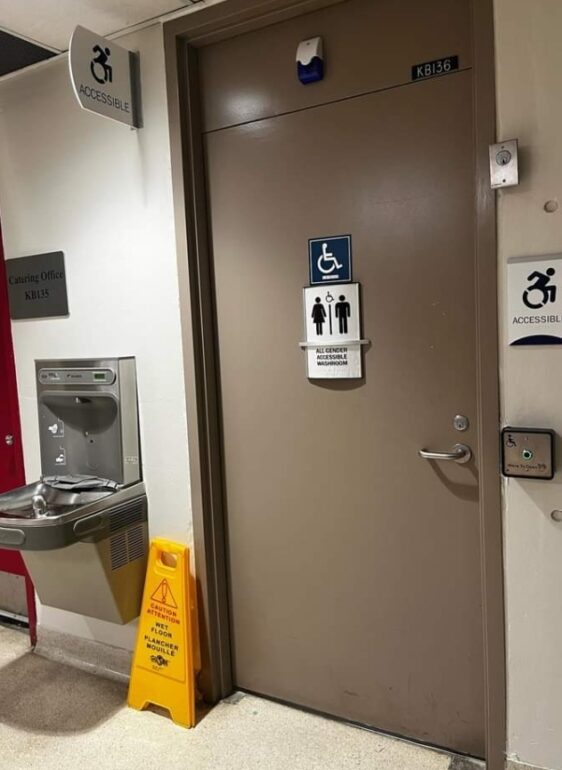Jam Allen, who uses she/they pronouns, is a Humber North campus student who experienced discrimination while being fem-presenting when going to use the women’s washroom at a bar.
“I had a security guard stop me and tell me I’m not allowed in there and tell me like over and over again like no, you’re a man, you can’t go in there,” Allen said. “And I tried to argue back and then I was not allowed. Security would not allow me in there.”
An Ipsos survey from 2016 reported that 35 per cent of LGBTQ+ Canadians (seven per cent strongly and 28 per cent somewhat) face gender-based discrimination.
Allen prefers using the gender-neutral washroom if there is one because it feels safer to them than entering a men’s washroom fem-presenting or possibly being misgendered in the women’s washroom.
“At Humber, at least the one that’s where my program is, it’s the gender-neutral washroom and also the accessible washroom—using like the accessible washroom as the gender-neutral bathroom doesn’t feel like the full solution,” she said.
“If someone who has accessibility issues comes by and needs a washroom and then I come out fully able-bodied using their washroom, which is like also the all-gender washroom, it’s like you feel a bit bad doing that because it’s not like there’s any other option nearby,” Allen said.
Kai Zamora, who uses they/them pronouns, agrees with Allen that most gender-inclusive washrooms are also accessible washrooms, which is an improvement but more progress is needed.
Zamora is the executive director of Justice Trans, a Canadian organization with the mission to create a transphobia-free world.
“Those washrooms also are often far and few between,” they said. “People will have to travel. Let’s say, you’re in a university, sometimes you have to go to the basement for one, sometimes you have to travel to different floors for one. It’s about more than just inclusion, it’s about centring.”
“In terms of raising awareness, I think that there’s just a lot of this normative privilege, which is to say that folks who aren’t trans don’t have to think about how it feels not to be able to have a washroom that feels safe for you or that acknowledges who you are,” Zamora said.
For small business owner of Silk Fang, E Li, who identifies as a Trans man and has been in the LGBTQ+ community since the age of 14, believes no washroom should have to be gendered.

These are some of the pronoun pins that E Li's small business, Silk Fang, offers. Photo credit: E Li
“Every time you step into a men’s washroom, it’s nasty, and every time you need to use a woman’s washroom, you’re waiting 20 minutes,” Li said. “Like, it’s just so silly, and it’s based on very restricted ideas of what gender should be and how it should function in society.
“The truth is that no gender needs, no washroom needs to be gendered, nothing in life truly needs to be gendered,” he said.
Li uses the women’s washroom for safety reasons due to his long hair although it goes against his gender identity.
“If your appearance and body don’t align with the incongruence of what your gender expression should be, that’s when the violence happens, that’s when the stigma happens,” he said. “Right, because there’s an incongruence between what we’ve been told by society is acceptable and people’s truths, people’s lived experiences.”
“I was talking to an elder butch lesbian,” Li said. “She’s a short-cropped hair, plus size woman and she walked into the women’s washroom and was using it and she gets stares—it is again, not a transgender issue, it is a gender issue.”



